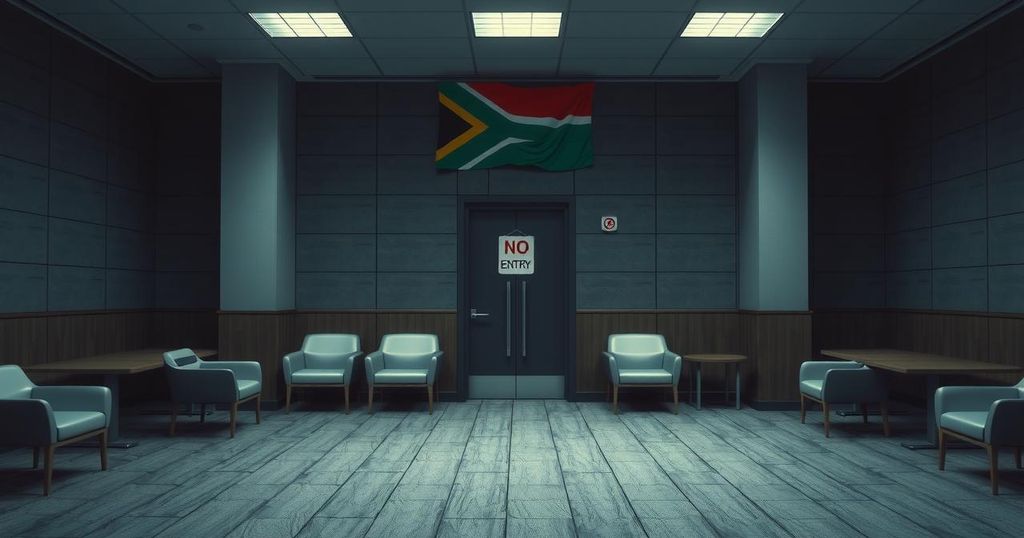Rubio Declares South Africa’s Ambassador Unwelcome in the United States

U.S. Secretary of State Marco Rubio has asserted that South Africa’s ambassador, Ebrahim Rasool, is “no longer welcome” in the U.S., labeling him as “persona non grata”. This declaration aligns with the Trump administration’s contentious position regarding South Africa, particularly following recent executive actions affecting aid and land expropriation laws. Rasool, an anti-apartheid activist, faces this diplomatic fallout amidst broader geopolitical dynamics.
In a developing story, U.S. Secretary of State Marco Rubio declared that South Africa’s ambassador to the United States, Ebrahim Rasool, is “no longer welcome” in the country. This statement is part of a broader strategy by the Trump administration towards South Africa. Rubio accused Rasool of being a “race-baiting politician” who harbors animosity towards President Trump, thereby designating him as “persona non grata”. This information was shared via a post on the platform X, alongside a link to a Breitbart article that discussed Rasool’s recent comments regarding Trump’s connections to far-right groups in Europe.
The State Department has not provided specific details concerning this ban, and it remains uncertain whether Ambassador Rasool was present in the United States when the decision was finalized. Marco Rubio made this announcement while returning to Washington from a Group of Seven foreign ministers meeting held in Canada. Although it is rare for the U.S. to expel a foreign ambassador, this action is not unheard of, as lower-ranking diplomats face expulsion under similar conditions.
Historically, the expulsion of a foreign ambassador has been uncommon, as evidenced during tense periods such as the Cold War or following Russia’s annexation of Crimea; both nations refrained from expelling their ambassadors amidst escalating diplomatic tensions. Attempts to contact the South African Embassy for further commentary were unsuccessful at the conclusion of the business day.
Rasool’s political career includes serving as South Africa’s ambassador to the U.S. from 2010 to 2015 and returning in January. His history includes being evicted from a white-designated area in Cape Town and becoming an anti-apartheid activist who was imprisoned. He is recognized as a supporter of Nelson Mandela and has engaged in politics through the African National Congress.
This situation follows President Trump’s executive order that cuts financial assistance to the Black-led South African government. The executive order claims that Afrikaners are under threat from a new law that permits the expropriation of private land. The South African government has countered, asserting that the law is not racially motivated and accusing Trump of propagating misinformation regarding the situation. Despite the claims, it remains unclear if any land has been unlawfully seized under this law. Additionally, Trump suggested refugee status for Afrikaners in the U.S., who constitute only a fraction of South Africa’s white population.
The recently enacted Expropriation Act allows the South African government to repurpose land in certain conditions, targeting inequalities rooted in the apartheid era that forced Black individuals into designated areas. Elon Musk, a South African native and head of Trump’s Department of Government Efficiency, has expressed concerns on social media regarding this legislation, framing it as a threat to the white minority in South Africa.
In summary, South Africa’s ambassador to the U.S., Ebrahim Rasool, has been declared “persona non grata” by Secretary of State Marco Rubio amidst ongoing tensions between the countries. While the South African government denies the racial implications of its land expropriation laws, the Trump administration maintains a critical stance, especially towards figures linked with the country’s governance. This incident reflects the complex and often turbulent diplomatic relations between the U.S. and South Africa.
Original Source: winnipegsun.com







